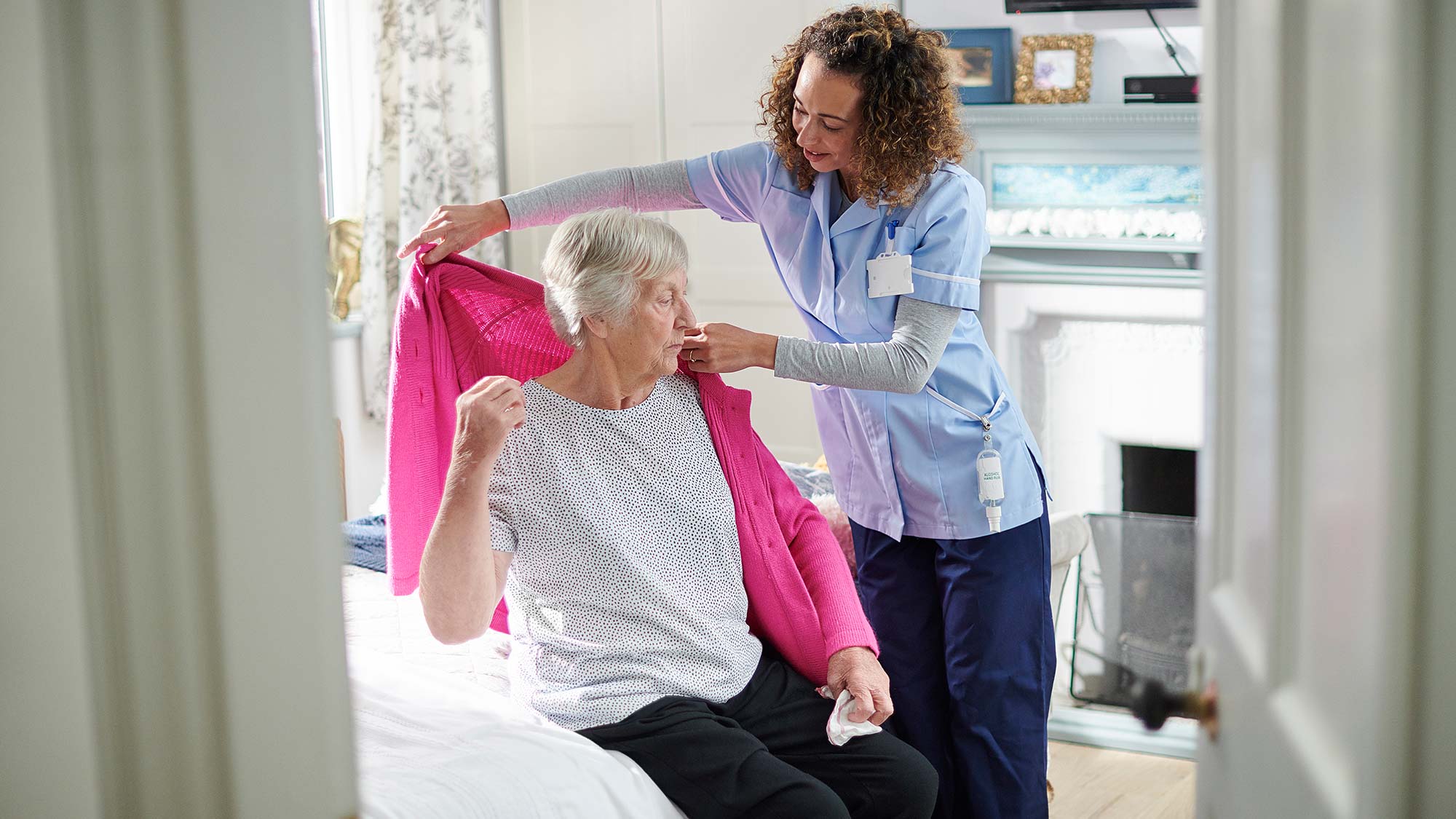ASPIRE: Preparing for practice
Would you like to become one of just 5,000 Learning Disability Nurses in the UK? If you're interested in being a nurse who works with people with learning disabilities, we're working with Health Education England to offer a programme that is the first of its kind.

There’s national recognition by the Nursing and Midwifery Council and Royal College of Nursing of a decline in the numbers of Learning Disability Registered Nurses (LDRN)
The number of LDRN working in the NHS in England has grown by just 22 since a record low three years ago: 3,192 in June 2018 to 3,214 in February 2021.
The workforce has been steadily shrinking and nationally there are only 5,000 LDRN (with a decrease of 1% year on year) compared to:
- 567,291 Adult Nurses (increase of 3.4% year on year)
- 92,780 Mental Health Nurses (increase of 1.7% year on year)
- 55,062 Child Health Nurses (increase of 2.62% year on year)
What is the ASPIRE programme?
Health Education England have created 50 Funded Spaces which will run for seven months (commencing May 13th 2024)
This will be followed by a two-year blended programme commencing in January 2025.
By January 2027 on successful completion of the programme you will be qualified as a Registered Nurse (RNMH or RNLD)
Part 1: ASPIRE programme (commences May 2024 ends December 2024)
Seven-month blended programme [2 x 2 day residential block at Plymouth Marjon University Campus (Block 1: 13th and 14th March and Block 2: 15th
and 16th July)
750 Practice Hours
Year 1/Part 1 Nursing Proficiencies
Band 4 Salary (£23,949 - 26,282) (£15,607/student (pro-rata)
Travel and accommodation funded for residential blocks (£400)
Course Fee Fully funded (£3,000/student)
Practice Education Support (£1,250/student)
Completion of the programme will result in the award of PgCert ASPIRE: Preparing for Practice (Nursing individuals with Learning Disability and Neurodivergence) or (Nursing individuals with Mental Health Conditions)
PFPM01 Developing Practice in Learning Disability and Neurodivergent Nursing [30 credits]
or
PFPM02 Developing Practice in Mental Health Nursing [30 credits]
PFPM04 Context of Professional Learning Practice [15 credits]
PFPM05 Influencing Professional Nursing Practice [15 credits]
Part 2: Pre-Reg Nursing (January 2025)*
MSc Pre-registration Nursing (with Learning Disability or Mental Health)
2 year blended programme
Apprenticeship with paid salary at Band 4 (£23,949-£26,282)
NHSE Funding Initiative eligible (applies to RNLD route only)
Successful candidates register as Registered Nurse (RNLD) or (RNMH)
Training completes December 2026/January 2027
Successful candidates register as Registered Nurse (RNLD) or (RNMH)
*subject to NMC approval
Minimum entry requirements
- A previous degree with a 3rd classification
- A foundation degree
- Level 2 Numeracy and Literacy
Learning Disability Nursing Resources
The National Learning Disability Nursing Forum have lots of free resources available to everyone. You can find them all on their website here.
Contact us
To find out more about the programme and how to apply, please contact Saoirse Read or Lauren Davis for information about the Learning Disabilities route, or Anne-Marie Lyons for information about the Mental Health route.
What you'll study as part of the ASPIRE programme
Developing Practice in Learning Disability and Neurodivergent Nursing
This clinical practice based module will enable learners to understand, explore and reflect on the professional responsibilities and challenges of the registered nurse role within learning disability and neurodivergent nursing and to develop the professional knowledge, skills and behaviours required for delivery of high-quality, safe, person-centred care. Learners will develop core proficiencies within their scope of professional practice in the context of contemporary evidence-based practice, local policy and legal and ethical frameworks under the direction or supervision of a registered practitioner.
Placement in clinical practice will provide opportunities for learners to develop and meet the Standards of proficiency for registered nurses working with individuals presenting with a learning disability and neurodivergent needs. Whilst in clinical placement, learners will be continuously assessed and undertake two formal assessments including an Episode of Care and Medicines Management as required in their Practice Assessment Document (PAD). Formal assessments will be completed by a designated Practice Assessor.
Learners are required to complete a minimum of 750 practice learning hours. All practice-learning hours must be recorded in the Practice Assessment Document.
Context of Professional Learning Practice
This module will enable the student to explore the conceptualisation of professionalism of the health professionals with respect to identity, knowledge, skills, and values expected by the nursing discipline.
Accordingly, it will address issues related to professionalism, professional values, and attitudes required of a registered nurse. Students will develop skills in interdisciplinary collaboration and partnerships as well as developing effective communication among other health professions, patients, and their families in the delivery of person-centred care.
Influencing Professional Nursing Practice
This module will enable the student to critically analyse their personal and professional development through the review of contemporary professional practice in their area of practice. Nursing is a profession with rich career opportunities.
It evolves with time to meet socio-political, economic, and healthcare technology changes, as well as globalisation. Good leadership is fundamental to providing safe, effective healthcare to patients/service users/clients and is vital to leading service improvement across health and social care settings.
The aim of the module is to provide students with the opportunity to explore the concept of leadership within health and social care services. They will develop a range of leadership skills to meet current and future demands of complex health and social care organisations.








